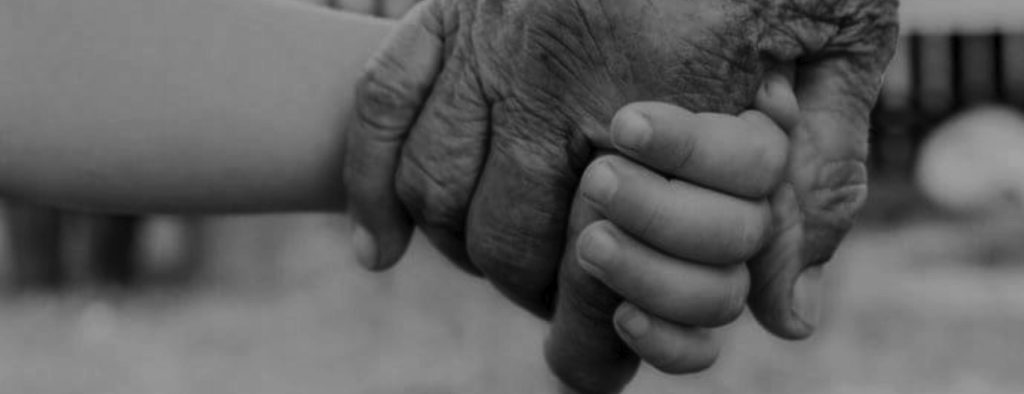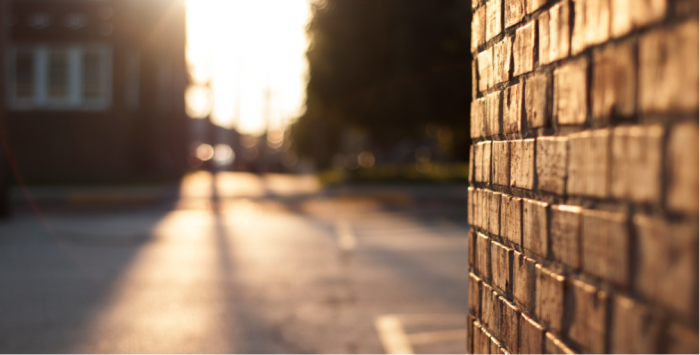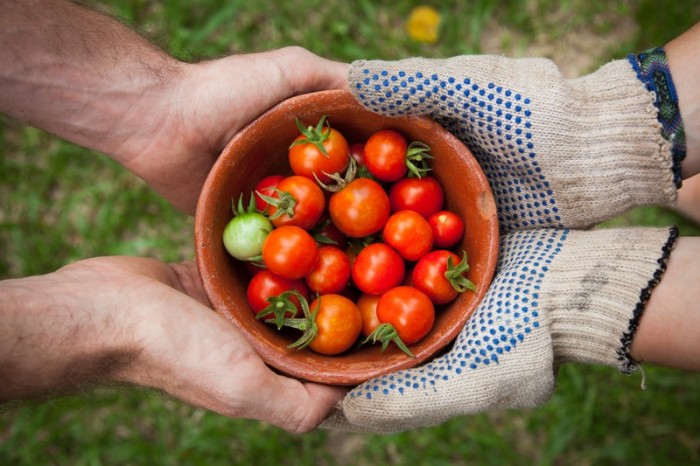
The Family, the State and the Common Good
Over recent decades, the relationship between the family and the state has been changing, but do we stop to consider the consequence of these changes? The family is where we learn to relate to others. It is the core of our social understanding and the nexus of how we engage with others within a community. Our ability to build the Common Good is directly related to the quality and values of family life.
Whilst there are many other factors at play, the changing nature of the family and its relationship with the state in particular have consequences for the whole of society. We have been exploring the implications and potential solutions – including a holding a public conversation, drawing on the diverse expertise of contributors Philip Booth, Cathy Corcoran, Mark Molden and Sir Al Aynsley-Green.
The concept of ‘the family’ has become overly politicised, often loaded with assumptions and entangled within ideological divides. In modern Britain, while the notion of the traditional, nuclear family is familiar to most people, it has perhaps become alien to the experiences of large sections of society for whom different kinds of attachment arrangements apply. The reality today is that the idea of ‘family’ means different things to different people.
To what extent should the state get involved in family life and what responsibilities should a family carry? Responsibilities traditionally held by the family are no longer routinely passed down. Over recent decades it has increasingly become the norm for the state to take on some of the responsibilities families used to carry. Boundaries between state and family have become blurred.
However, the family remains the foundation stone upon which our society and culture are based. As its relationship with the state has changed, we are seeing stark crises in social care, loneliness and mental health. Not only is this a strain on the state, but outsourcing so many of the responsibilities families used to carry weakens our shared life together, the Common Good.
Professor Booth begins with a point of principle, held in Christian social teaching, that the purpose of the state is to serve the family and not the other way round: he contends that this relationship has become inverted.
The family could have been supported through taxation policy, one of the most obvious levers available to government. But, Booth argues, since 1948 under all political parties and philosophies, the British state’s taxation policy has undermined the family by prioritising the individual.
Booth, a Professor of Finance, Public Policy and Ethics at St Mary’s University Twickenham, argues that levying tax on an individual basis whilst providing welfare benefits on the basis of family income has led to disincentives for family formation: ‘fiscal policy should allow the family to thrive and not penalise it. This should be the belief of all Christians of goodwill – tax and welfare policy should be rebalanced.’
But if changes are to be made to this individualistic model, care will be needed to avoid unintended consequences. For example, one of the arguments for a more individualised taxation model was to liberate women’s economic potential. Recalibrating the system in a way that fosters family life while also protecting the gains made for women and gender equality is essential, but there will inevitably be tensions involved in designing a taxation model for the Common Good.

Government policies on welfare and homelessness can become statistic-led rather than human-led, with the interests of the state prioritised above the people it is supposed to support.
Reflecting further on how the welfare system undermines the family, Cathy Corcoran OBE recalls stories of poor and homeless families being moved away from their places of belonging to different cities because of social housing shortages. Whilst Professor Booth illuminates the shortcomings of the tax system, Corcoran focuses on what she sees as the failings of the present welfare system.
After 15 years as Chief Executive of the Cardinal Hume Centre, a charity dedicated to helping people overcome poverty and homelessness in London, she cites maladministration of benefit reform and highlights the British state’s ‘de-prioritisation of young people’ through cuts to local services and the withdrawal of legal aid. She is sceptical of the effectiveness of fiscal adjustment, arguing that when the state’s relationship with the family is focused on financial levers alone, it loses the ability to recognise the importance of social bonds and personal relationships. It becomes a mere issue of numbers on a spreadsheet rather than people, communities and lived experiences.
Corcoran’s view is that the solutions do not necessarily involve the state having to spend more money. Rather, strengthening families requires prioritisation: ‘poverty is caused by the ways we choose to live in society, and can be ended if we make different choices’. Change requires coordination – where the different arms of government work together to make effective policy rather than causing conflict, deprivation and misery driven by opposing objectives from each end of Whitehall.
She adds that the picture would be a lot darker were it not for the work that Christians and church groups as ‘ambassadors of hope’ are doing to support families in need.
Meanwhile, Mark Molden, Chief Executive of Marriage Care UK, speaks of ‘relationship poverty’ and a society which has lost sight of the importance of positive and effective family relationships. Drawing on his experience leading a national charity delivering couple counselling, he believes that a society in which everyone can flourish is one that gives priority to the ‘integrity, stability and health’ of the couple relationship.
Notwithstanding the diversity of family arrangements, he argues that pretty much every family begins with some kind of couple relationship at the core, and that the ability to withstand the inevitable struggles of life is greatly strengthened when that relationship is strong and well supported.
Like Booth and Corcoran, Molden’s perspective is informed by Catholic Social Teaching, which teaches that ‘the locus of human flourishing is in our ability to respond to the divine impulse to love and be loved.’ He argues that when that ability is fragile, the resulting relationship poverty is a significant barrier to the Common Good: in other words we do not have the basic building blocks to live well with other people. This can become both the driver of material poverty and the consequence – with huge implications for physical and mental wellbeing.
Fostering the ability to respond to that ‘impulse to love and be loved’ therefore enhances not only relationships in a marriage and between parents, but across the wider family too. When it is working well, the young have much to learn from older relatives as role models and the loss of dignity in old age can be restored through living a shared life with the young: a Common Good.

That the young and the old, the rich and the poor, are suffering from unparalleled levels of loneliness should alarm us all and reveals a serious relational deficit in our society. Molden makes the case for a long-term public health campaign similar to those for seatbelts and smoking, but this time educating people around couple relationships, arguing that supporting and strengthening the family in this way would be an effective investment by the state with multiple benefits for the whole of society.
It goes without saying that for the flourishing of children, policies that enable the conditions in which families thrive are vital. But Sir Al Aynsley-Green argues that recent governments have lost sight of the moral argument for prioritising children in policy, a case in point being the two-child limit.
The first Children’s Commissioner from 2005-2010, Aynsley-Green had sight of approaches in other countries, such as the Swedish parliament which has an office whose only function is to ‘childproof every aspect of emerging legislation and every budget’.
But while the state has a critical role to play in enabling conditions in which families can thrive, the state cannot and should not usurp the autonomy of the family, or the role of community.
Aynsley-Green places great emphasis on the local and personal. Recalling the well known phrase ‘it takes a village to raise a child’, he argues that local institutions, and particularly churches and faith based charities have crucial roles to play in supporting families raising children. Urging local communities and individuals to take up the mantle for families, he argues for a constructive social community activism in the spirit of the Victorian social reformers.
We can see that families are key to healthy human development, but currently the conditions to encourage family formation are not in place. If we are serious about building the Common Good, the family must be a priority for all of us, not only in supportive policies and across government departments, but especially at local community and neighbourhood level. Not least, it is vital that the autonomy of the family is encouraged and supported.
Our contributors speak from the perspectives of economics, public service and faith-based social action, identifying not only some of the key issues that must be tackled, but also some of the opportunities, to reform the relationship between families, communities and the state. The family must be reclaimed from partisan politics if we are to rehumanise our society and generate the conditions for the Common Good.
To arrive at a meaningful relationship and a mutually beneficial between state and the family in a way that enhances our ability to build a shared life together, our Common Good, it is clear that we must go beyond addressing the material wellbeing of individuals, and focus on a holistic and relational vision of human flourishing.
Miriam Brittenden
The issues raised in this article were discussed by (pictured below, left to right) Professor Philip Booth, Mark Molden, Sir Al Aynsley-Green and Cathy Corcoran OBE at a public debate ‘Family, State and the Common Good’ held in July 2018 at St Mary’s Church, Putney, the first in a three part series held in partnership by Together for the Common Good, Theos and Benedict XVI Centre.

